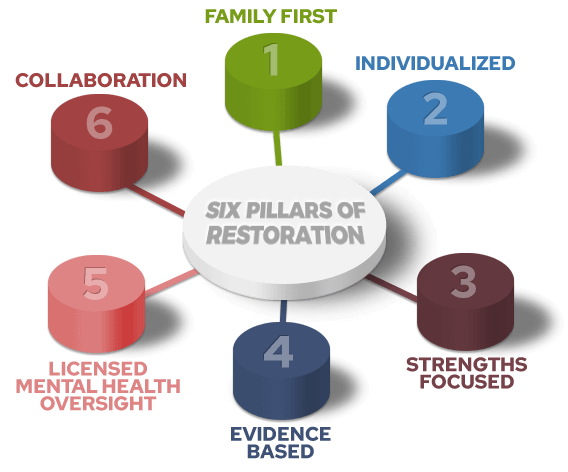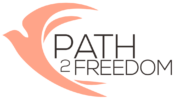
SIX PILLARS
Of Restoration
1. FAMILY FIRST
Being family is an organization-wide priority to exist as a community of support for our Safe Home residents. Safe Homes are staffed with full time parenting adults as opposed to shift workers. Parenting adults express care, challenge growth, provide support, share power, and expand possibilities for those we serve. The Magnolia Model values grandparent interactions and incorporates grandparenting into volunteer opportunities
2. INDIVIDUALIZED SERVICES
The Magnolia Model provides individualized services based on the unique needs of each child. This individualized approach is modeled throughout all areas of programming. Parenting adults strive to meet the unique familial needs of each child. Every child is assigned a personalized treatment and intervention team meeting their unique therapeutic needs.
3. STRENGTHS-FOCUSED
The Magnolia Model recognizes that each child is designed with a unique set of gifts and talents known as strengths. The team actively listens to learn about each child’s unique set of strengths, interests, and desires. The team engages in conversations about those strengths in an encouraging way that allows the child to share more autonomously and openly. The organization invests in and fosters the exploration and development of strengths, desires, and interests. The Safe Home Team celebrates with residents as milestones are achieved.
4. EVIDENCE-BASED
The Magnolia Model commits to track, assess, and report outcomes to provide evidence of success. The model was developed upon existing evidence-based models of care and studies on the impact and treatment of trauma. Some of those models and studies include:
The Spark & Search Institute Report 2019
CDC-Kaiser ACE Study
Maslow’s Hierarchy of Needs
Dr. Bill Hettler’s Dimensions of Wellness
DCF Certification Training
5. LICENSED MENTAL
HEALTH OVERSIGHT
The Magnolia Model aims to become the best practice model for long-term care nationwide. Therefore, the safe house and supportive programs are monitored and assessed by a professional Licensed Mental Health professional. This LMH professional provides supervision to staff, evaluates outcomes, and works to ensure the efficacy of the Magnolia Model of Care.
6. COLLABORATION
The Magnolia Model was launched to respond to gaps in services and therefore does not duplicate services. Instead, the model relies on and values collaborating with existing service providers. Collaboration extends the child’s supportive community beyond the property of the safe home. Extending the supportive community beyond the Magnolia Program fosters longevity of support so that when girls graduate from the Magnolia Program, the extended supportive community remains. The Magnolia Program is enhanced by leveraging other existing valuable services. Services such as equine experiences, cooking, fitness, and art classes are offered by partnering organizations, churches, businesses, and individuals.

